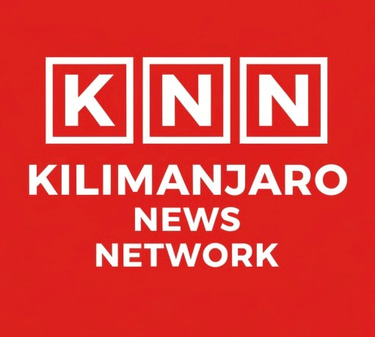Paul Biya: Victim of Elder Abuse or Hostage to a Monster of His Own Creation?
In the heart of Africa, a nation watched in stunned silence as its 92-year-old leader fumbled through his eighth inauguration, prompting aides to whisper basic instructions on a hot mic. Paul Biya’s public frailty has ignited a firestorm of debate: is this elder abuse by a rapacious elite, or the inevitable collapse of a dictatorship he meticulously engineered? This op-ed dissects the tragedy of a man—and a country—trapped by the very monster he created.
OPINION
Theodore Nkwenti
11/9/20255 min read


It was Winston Churchill who said "Dictators ride to and fro upon tigers which they dare not dismount. And the tigers are getting hungry". That warning has rarely felt more apt than in the spectacle unfolding in Cameroon. On November 6, 2025, Paul Biya—Africa's second-longest-serving leader at 92 years old—was sworn in for an eighth term as president after a stolen election. What should have been a routine ceremony descended into a cringe-inducing farce, broadcast live to a stunned nation and world. Biya, visibly frail and disoriented with a vacant stare, required repeated prompts from aides just to stand and recite his oath. This wasn't mere senescence; it was a new low, a public unraveling that raises profound questions: Is Biya a victim of elder abuse, propped up by a rapacious elite? Or is he trapped in a Frankenstein's monster of his own design—a kleptocratic system that devours its creator?
The viral clip from the National Assembly tells the story. As the chamber's president read the oath, Biya sat motionless, staring blankly. An aide leaned in, hot mic capturing the desperation:
Aide: “Stand up, stand up, Mr. President of the Republic!"
Biya: “What?"
Aide: “Stand up, Mr. President, he is reading the oath!"
Biya: “Now, do I need to stand up?"
Aide: “Yes, Mr. President, right now—he is reading the oath of office!"
This exchange, excruciating in its simplicity, laid bare a leader detached from reality. Biya didn't recognize the setting as his own inauguration. He failed to grasp that he was the president-elect being addressed. And he needed basic instructions on protocol he'd followed seven times before. Even the symbolic handover of the ceremonial pen—for appointing ministers—seemed lost on him, a hollow gesture in a theater of the absurd.
Cameroon's opposition and civil society groups were quick to cry foul. The Social Democratic Front (SDF) called it "a national embarrassment," while human rights watchdogs like Amnesty International highlighted the irony: a man unable to manage his own faculties overseeing a nation of 30 million. Biya's October 2025 "re-election" with 53% of the vote—amid allegations of ballot stuffing, tally sheets fraudulently doctored and voter suppression—already strained credulity. Turnout was reportedly under 30% in opposition strongholds, and the Constitutional Council dismissed fraud claims in a ruling that read like a rubber stamp.
But zoom out, and the roots of this tragedy trace back decades. Biya assumed power in 1982 after his predecessor resigned, promising renewal. Instead, he engineered a one-party state until 1990, then rigged multiparty elections repeatedly to cling on. Forbes once estimated his personal wealth at $200 million—modest by dictator standards, nonetheless staggering against Cameroon's GDP per capita of $1,600. His family lives lavishly in Swiss chateaus and Parisian apartments, while 37% of Cameroonians languish below the poverty line, per World Bank data. His daughter, Brenda Biya flew in for the ceremony by private jet.
The "tiger" Churchill evoked is Biya's inner circle: the usual suspects of the charade, notably his wife Chantal Biya—Cameroon's Marie Antoinette, infamous for her extravagant wigs and shopping sprees in Europe while hospitals lack basic medicine; the Secretary General at the Presidency, Ferdinand Ngoh Ngoh, a shadowy enforcer accused of embezzling millions in state contracts; his son Franck Biya, the rumored heir apparent facing money-laundering probes in France; Director of Civil Cabinet and Biya's cousin Samuel Mvondo Ayolo, gatekeeper of palace access and oil deals; and the military brass who command loyalty through bribes and fear.
This coterie of military brass, business tycoons, and tribal allies enriched by oil revenues, timber exports, and cocoa monopolies forms the core of the kleptocracy. Transparency International ranks Cameroon 144th out of 180 on its Corruption Perceptions Index, with public funds siphoned into ghost projects and offshore accounts. Biya's regime has jailed journalists, crushed protests in the Anglophone regions (where a separatist war has killed over 6,000 since 2016), and amended the constitution in 2008 to scrap term limits—his masterstroke for eternal rule.
Yet now, at 92, Biya appears more puppet than puppeteer. Reports from Cameroonian exiles and leaked diplomatic cables (including a 2023 U.S. State Department assessment) describe him as increasingly isolated in his Etoudi Palace, medicated heavily, and rarely engaging in policy. His public appearances are scripted rarities; the last before the inauguration was in 2023 at a France-Africa summit, where he dozed off mid-speech. Geriatric experts, speaking anonymously to outlets like Jeune Afrique, suggest symptoms consistent with advanced dementia—confusion, memory loss, and apathy—exacerbated by a 2019 stroke rumor that the palace never confirmed.
This isn't just personal decline; it's systemic rot. Biya's refusal to groom a successor has created a vacuum. Potential heirs—like his son Franck, accused of money laundering in Europe—or cabinet ministers jockey in the shadows, fearing that dismounting the tiger means becoming its meal. The elite propped Biya for this eighth term not out of loyalty, but self-preservation: his name on the ballot ensures continuity of the gravy train. As one Yaoundé-based analyst told Reuters, "They need the old man as a figurehead. Without him, the whole edifice crumbles."
Is this elder abuse? Undeniably, in a moral sense. Forcing a nonagenarian with evident cognitive impairment into the spotlight violates basic dignity. But don’t tell that to the rapacious and greedy people in his orbit. Cameroon's penal code criminalizes abuse of the elderly, yet who prosecutes the president? Internationally, the African Union and ECOWAS turned a blind eye, issuing perfunctory congratulations. France, Biya's longtime backer (with military bases in Douala), prioritizes stability over ethics—Cameroon's oil and counterterrorism role against Boko Haram trump human rights.
But to see only a victim is to ignore the architect of the ruin. For over four decades, Biya meticulously constructed a system where power was centralized in his person, opposition was ruthlessly crushed, and institutions were hollowed out to serve one man. He cultivated a culture of sycophancy, where loyalty trumped competence, and critical thought was a career-ending liability. He presided over a nation rich in oil, cocoa, and coffee, yet nearly 40% of Cameroonians live in poverty, while a tiny elite in Yaoundé thrives. Churchill's tiger is hungry because Biya fed it corruption instead of democracy.
The most damning admission of this reality came at the ceremony’s climax. The President of the National Assembly offered Biya a ceremonial pen, a symbol that he is the one in charge of ministerial appointments. It was a farce of Shakespearean proportions. The man who moments before needed to be told to stand up was now symbolically handed the reins of the state.
The tragedy of Cameroon is no longer just about a dictator clinging to power. It has become something darker and more complex. It is the story of a man being consumed by the very creature he built to protect himself. He is both the master and the prisoner, the rider and the soon-to-be meal for his hungry tigers. The world may watch with a gasp, but for the people of Cameroon, it is a national humiliation with very real and painful consequences. The curtain needs to fall on this shameful play, for the sake of the nation, and perhaps, even for the sake of the frail old man at its center.
